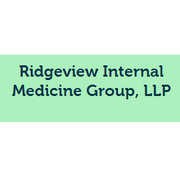The Do's and Don'ts When You Have High Blood Pressure

Hypertension, or high blood pressure, is a condition that individuals are more susceptible to as they grow older. For men and women 55 or 65 years old, the risk of developing hypertension is 90%. This condition can affect the heart by hardening arteries, restricting the flow of blood to the heart, causing cardiovascular complications that put more stress on this organ, increasing the chances of a heart attack. However, with the right lifestyle changes and medical care, blood pressure can be properly managed.
Do:
Eat right.

Eating a diet high in potassium and low in fat, with fiber-rich fruits and vegetables is the most effective approach to lowering blood pressure naturally. A DASH (dietary approach to stop hypertension) diet reduces systolic blood pressure by an average of 5.5 mm Hg and diastolic blood pressure by 3 mm Hg.
Watch out for salt content, saturated fats, and trans fats. Sodium can show up in places you might not expect it, like bread, cold cuts, pizza, poultry, soups, sandwiches, cheese, pasta mixed dishes, meat mixed dishes, and savory snacks.
Stay physically active.
Regular exercise strengthens the heart, helps maintain a healthy weight, reduces cortisol levels, and helps manage blood pressure. Something as simple as a brisk walk 30 minutes a day, five days a week can lead to a 5 to 9 mm Hg reduction of systolic blood pressure. Other forms of dynamic exercise to consider are hiking or stair-climbing, jogging, running, bicycling, swimming, fitness classes, team sports, and dancing.
Don't:
Consume alcohol.
Alcohol has numerous long-term health risks, including heart disease, stroke, cancer, and high blood pressure levels. More than three drinks in a sitting can raise blood pressure to unhealthy levels, while binge drinking can cause lasting detrimental effects. To protect your health, avoid alcohol entirely or drink only in moderation.
Use tobacco.
Tobacco has a myriad of harmful health risks, including elevating your heart rate and blood pressure. By eliminating the use of tobacco, you reduce systolic blood pressure by 3.5 mm Hg and diastolic blood pressure by 1.9 mm Hg. Exposure to second-hand smoke can be just as problematic. If you are exposed to a smoker, it's critical to encourage them to quit or eradicate your exposure to them. For resources on how to quit smoking, contact your local medical care provider.
For unmatched professional medical care in Rochester, NY, residents choose Ridgeview Internal Medicine Group. Since 1992, this health center has been the leading source for ongoing medical care for adults. Their comprehensive general health services, including routine physicals, prevention and wellness assistance, or work and travel exams, help all patients achieve optimal health. Utilizing compassionate patient care and cutting-edge technology, physicians are able to offer the highest level of care. To learn more about their services, visit the website. For questions, call (585) 342-3870.
About the Business
(11 reviews)
Have a question? Ask the experts!
Send your question

